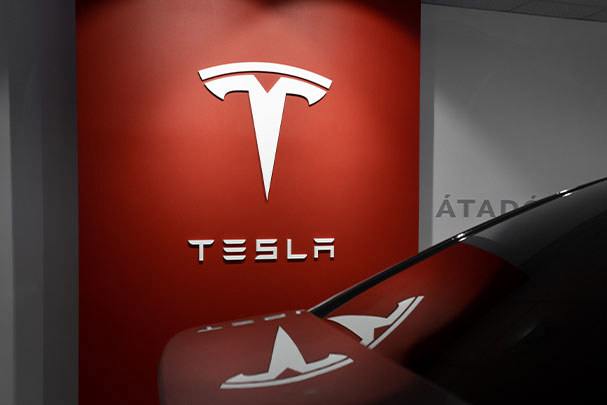
Nationwide Vehicle Contracts explores the future of car branding and the trends that are shaping the industry
Car branding has always been an essential part of the automotive industry, with car manufacturers investing millions of dollars in marketing campaigns to build their brand image. However, with the automotive industry undergoing a significant transformation, car manufacturers are rethinking their branding strategies to stay relevant in an increasingly digital world. This blog will explore the future of car branding and the trends that are shaping the industry.
The Shift to Electric Vehicles
The automotive industry is experiencing a significant shift towards electric vehicles, with more and more car manufacturers investing in electric vehicle technology. With this shift, car manufacturers will need to adapt their branding strategies to reflect this change. Brands that were once associated with gasoline-powered engines will need to reposition themselves to reflect their new focus on electric vehicles.
Car manufacturers that are investing in electric vehicle technology are emphasizing their commitment to sustainability and the environment. These brands are positioning themselves as leaders in the transition to a greener, more sustainable future. For example, Tesla has positioned itself as a leader in electric vehicle technology, with a strong focus on sustainability.
Autonomous Driving
Autonomous driving technology is rapidly becoming a reality, with car manufacturers investing heavily in this area. As autonomous vehicles become more prevalent, car manufacturers will need to adapt their branding strategies to reflect this change. Brands that were once associated with manual driving will need to reposition themselves to reflect their new focus on autonomous driving.
Car manufacturers that are investing in autonomous driving technology are emphasizing their commitment to safety and convenience. These brands are positioning themselves as leaders in the transition to a more efficient and safer driving experience. For example, Waymo has positioned itself as a leader in autonomous driving technology, with a strong focus on safety and convenience.
Sustainability and Environmentalism
The rise of sustainability and environmentalism has put car manufacturers under increasing pressure to demonstrate their commitment to these values. As a result, car manufacturers are adopting new branding approaches that reflect their commitment to sustainability and environmentalism. Brands that were once associated with fuel inefficiency and environmental degradation are repositioning themselves to reflect their new commitment to sustainability.
Car manufacturers that are investing in sustainability and environmentalism are emphasizing their commitment to reducing carbon emissions, conserving resources, and protecting the environment. These brands are positioning themselves as leaders in the transition to a greener, more sustainable future. For example, Toyota has positioned itself as a leader in sustainability and environmentalism, with a strong focus on reducing carbon emissions and conserving resources.
The Role of Social Media
Social media is playing an increasingly important role in car branding. Car manufacturers are using social media to connect with their customers, build their brands, and promote their products. Social media platforms like Instagram and Facebook allow car manufacturers to showcase their products and connect with customers in a more personal and engaging way.
Car manufacturers that are investing in social media are emphasizing their commitment to engaging with customers and building strong relationships. These brands are positioning themselves as leaders in the transition to a more customer-centric approach. For example, BMW has positioned itself as a leader in social media marketing, with a strong focus on engaging with customers and building strong relationships.
The Importance of Personalization
Personalization is becoming an essential part of the car buying experience. Car manufacturers are incorporating personalization into their branding strategies to provide customers with a unique and personalized experience. Personalization allows car manufacturers to connect with customers on a more personal level and build a stronger brand image.
Car manufacturers that are investing in personalization are emphasizing their commitment to providing customers with a unique and personalized experience. These brands are positioning themselves as leaders in the transition to a more customer-centric approach. For example, Porsche has positioned itself as a leader in personalization, with a strong focus on providing customers with a unique and personalized experience.
Conclusion
The automotive industry is undergoing a major transformation, and car manufacturers are rethinking their branding strategies to stay relevant in an increasingly digital world. The shift towards electric vehicles, autonomous driving, sustainability, social media, and personalization is reshaping the industry and forcing car manufacturers to adopt new approaches to branding. Brands that once were associated with traditional gasoline-powered engines are repositioning themselves as leaders in the transition to a greener, more sustainable future. The role of social media in car branding is becoming increasingly important, and car manufacturers are investing heavily in personalized experiences to build strong relationships with customers. Overall, the future of car branding looks promising, and car manufacturers that adapt to these trends and embrace change are likely to thrive in the years ahead.
Explore our blog section, where we share informative weekly blogs on various topics. You may also find our blog on How Car Commercials Have Changed Over the Years useful.
At Nationwide Vehicle Contracts, we are one of the UK's leading car leasing brokers and provide a range of leasing deals tailored to meet individual needs. For more information, feel free to refer to our extensive car leasing guides or contact our experts on 0345 811 9595.

